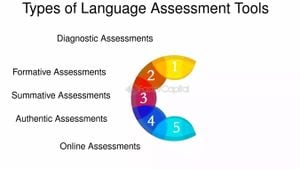Forgiveness Sunday is set to be observed on March 2, 2025, marking the final day before the Great Lent. This day holds immense significance within the Christian faith, embodying the spirit of reconciliation and the act of letting go of past grievances among individuals.
Historically, the observance of Forgiveness Sunday is deeply rooted in the monastic traditions of the early Christian church. It is believed to have originated from the practices of monks who would seek forgiveness from one another before retreating to the wilderness for 40 days of solitary prayer and reflection. Understanding the potential dangers of their seclusion, they cherished these moments of reconciliation, asking for forgiveness for both intentional and unintentional wrongs.
On this day, it is customary to ask for forgiveness from those one has wronged throughout the year. This extends beyond immediate family and friends, encompassing colleagues, neighbors, and even casual acquaintances. The act of expressing regret can be as simple as saying, “Forgive me,” to signify the earnest desire to mend relationships. Reciprocally, the response typically offered is, “God forgives, and I forgive,” reinforcing the communal aspect of forgiveness.
Church services play a central role on Forgiveness Sunday. Special evening services include the rite of forgiveness, where clergy and parishioners extend apologies to each other, reflecting humility and the important step toward catharsis. Many believers also partake in confession and communion to spiritually prepare for the subsequent season of Great Lent, beginning March 3, 2025.
Alongside church rituals, numerous traditional customs punctuate the day. One of the more colorful traditions includes the burning of the Maslenitsa effigy. This custom, which predates Christianity, symbolizes the farewell to winter and the removal of all negative emotions and grievances, akin to the purification of the soul. Ashes from this effigy are often scattered across fields, believed to promise fruitful harvests.
Forgiveness Sunday also fosters family gatherings, where people visit relatives and friends to seek and extend forgiveness. Sharing meals, especially those associated with Maslenitsa, is customary before the onset of the fasting period. Traditional dishes such as pancakes represent the last indulgence before Lent.
The observance is replete with superstitions. A clear and sunny day is said to predict an early and warm spring, whereas snowfall on Forgiveness Sunday is considered to foreshadow good crop yields. These beliefs reflect the integration of agricultural cycles with the religious calendar.
Importantly, several guidelines accompany the observance of Forgiveness Sunday to facilitate cultural and personal growth. Major activities recommended include genuinely seeking forgiveness from everyone one has wronged and offering forgiveness to others who seek it. Participants are reminded to visit church, spend quality time with family, and enjoy festive food one last time.
Conversely, there are certain behaviors to avoid on this sacred day. These include holding onto grudges or failing to forgive, which is viewed as prideful and detrimental to one’s emotional and espiritual well-being. Confrontations and arguments are strictly discouraged, aligned with the day’s theme of reconciliation. The consumption of alcohol should also be minimized as it contradicts the spirit of reflection and preparation for Lent.
Engaging in heavy physical work or allowing oneself to dwell on negative thoughts is also advised against. Instead, individuals are encouraged to focus on positive reflections, releasing negative emotions, and fostering compatibility with oneself and others.
Forgiveness Sunday encapsulates not just the act of asking for forgiveness but also the essence of communal and personal healing. The day serves as both a closing chapter on past grievances and as the beginning of renewed hope as the faithful transition solemnly toward the Lenten season. The forthcoming day promises to be not only significant for religious observance but also for personal introspection and community unity.



